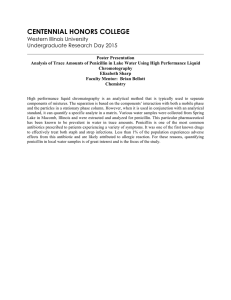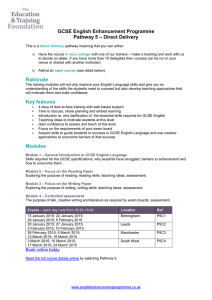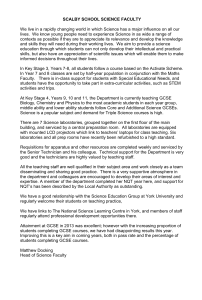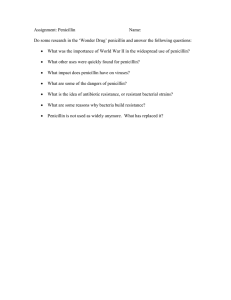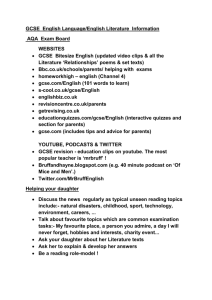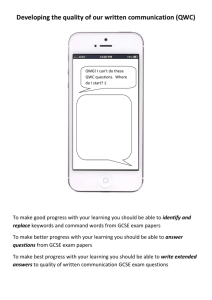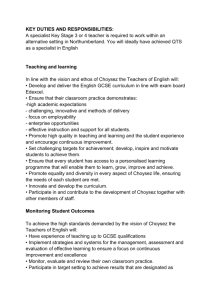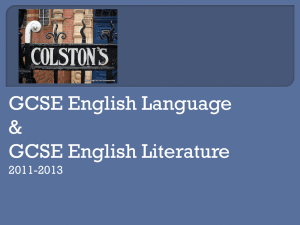Introduction - keywords & timeline task
advertisement
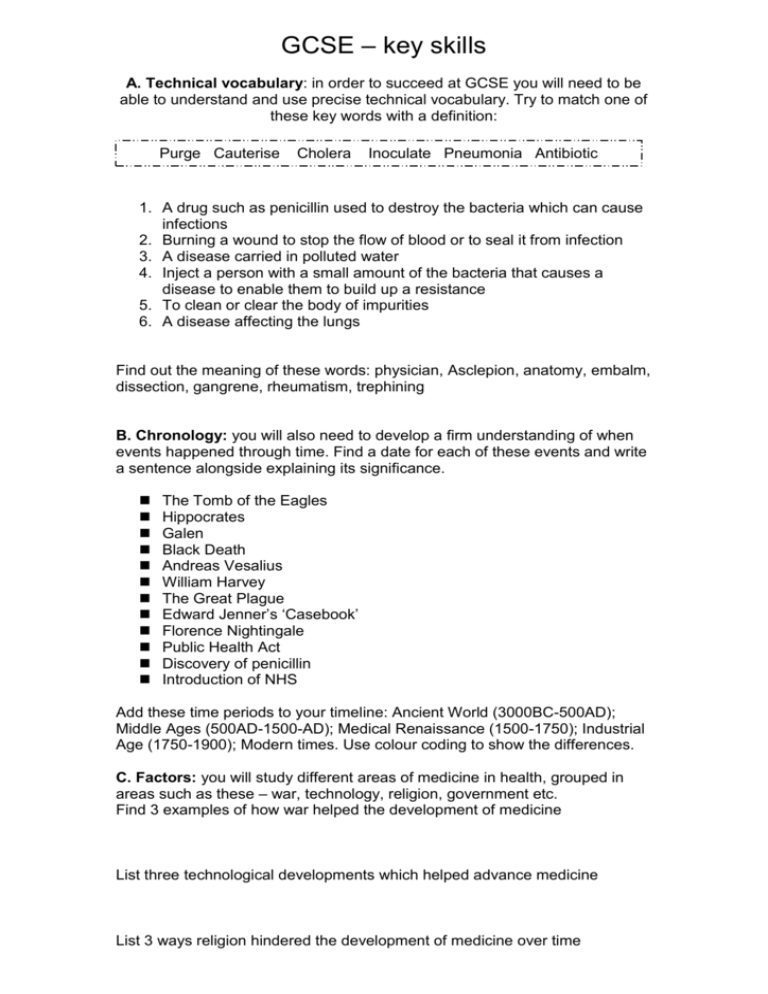
GCSE – key skills A. Technical vocabulary: in order to succeed at GCSE you will need to be able to understand and use precise technical vocabulary. Try to match one of these key words with a definition: Purge Cauterise Cholera Inoculate Pneumonia Antibiotic 1. A drug such as penicillin used to destroy the bacteria which can cause infections 2. Burning a wound to stop the flow of blood or to seal it from infection 3. A disease carried in polluted water 4. Inject a person with a small amount of the bacteria that causes a disease to enable them to build up a resistance 5. To clean or clear the body of impurities 6. A disease affecting the lungs Find out the meaning of these words: physician, Asclepion, anatomy, embalm, dissection, gangrene, rheumatism, trephining B. Chronology: you will also need to develop a firm understanding of when events happened through time. Find a date for each of these events and write a sentence alongside explaining its significance. The Tomb of the Eagles Hippocrates Galen Black Death Andreas Vesalius William Harvey The Great Plague Edward Jenner’s ‘Casebook’ Florence Nightingale Public Health Act Discovery of penicillin Introduction of NHS Add these time periods to your timeline: Ancient World (3000BC-500AD); Middle Ages (500AD-1500-AD); Medical Renaissance (1500-1750); Industrial Age (1750-1900); Modern times. Use colour coding to show the differences. C. Factors: you will study different areas of medicine in health, grouped in areas such as these – war, technology, religion, government etc. Find 3 examples of how war helped the development of medicine List three technological developments which helped advance medicine List 3 ways religion hindered the development of medicine over time
